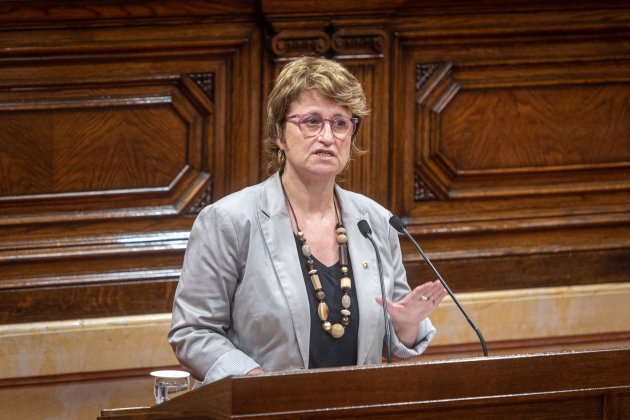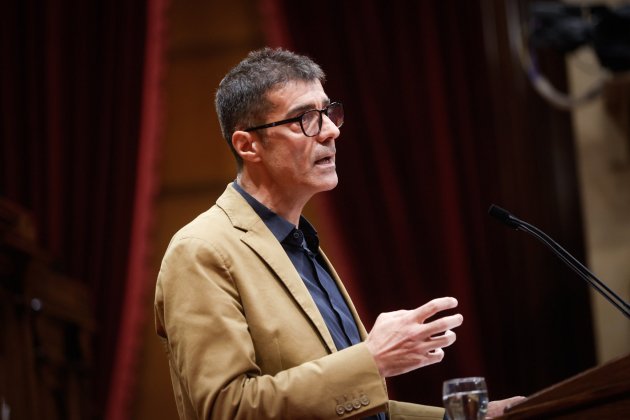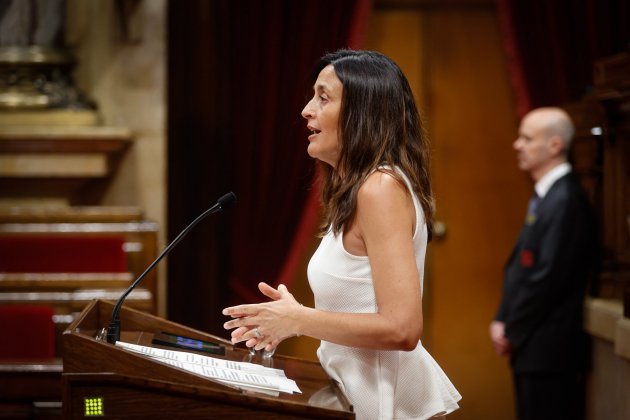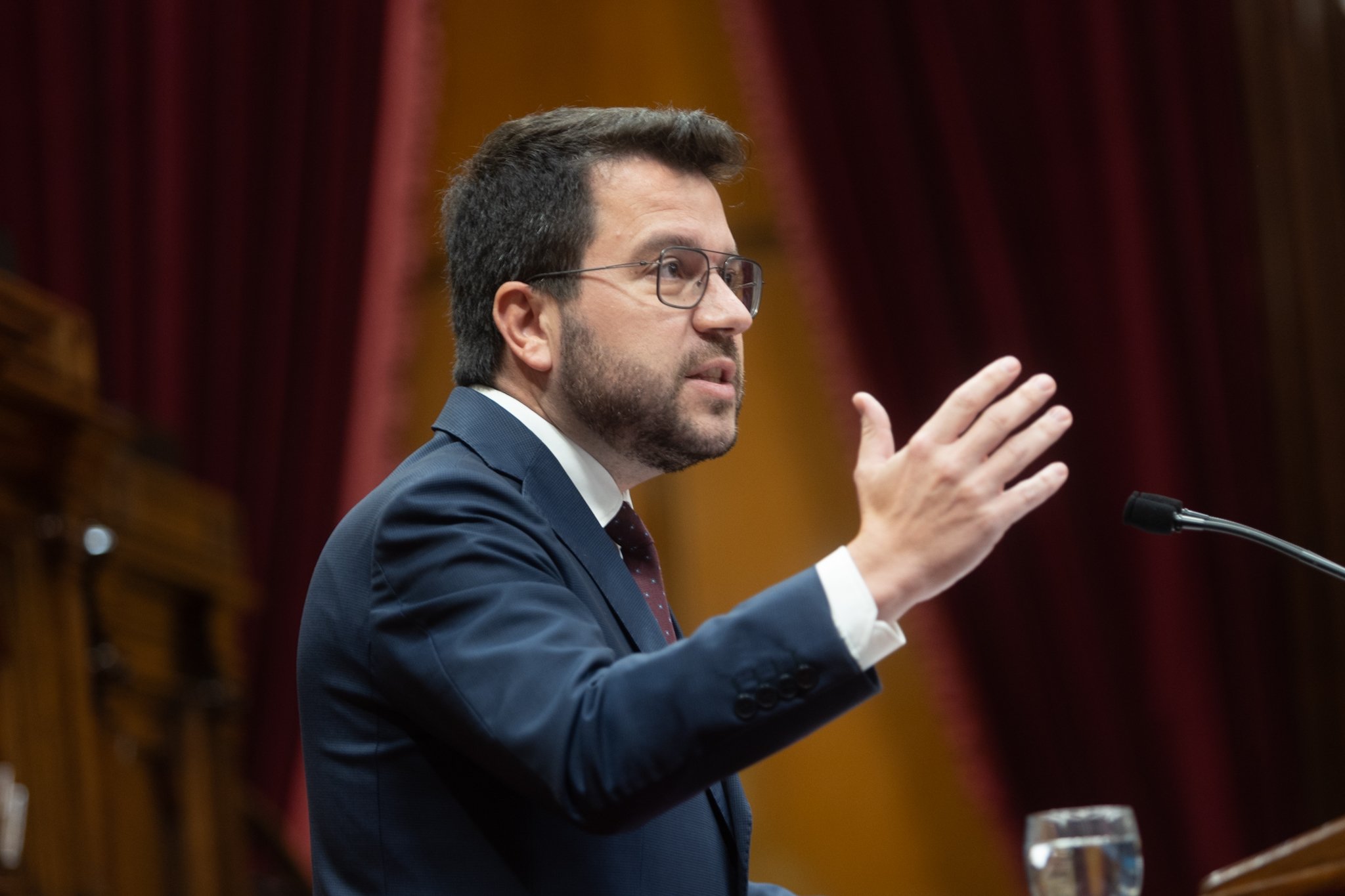This Tuesday afternoon, the Catalan Parliament held its monographic debate focusing on education, a way of monitoring the state of health of the system and taking the pulse of the sector. The debate, which lasted for three hours, was marked by criticism of the management of the recently-replaced Catalan education minister, Josep Gonzàlez-Cambray, and by the poor Catalan statistics on student failure and dropout rates (for which Catalonia is one of the territories with the worst data at Spanish and European scale), as well as the latest results obtained in reading comprehension, which place the Catalan territory at the bottom of the rankings. However, both the ERC-led Catalan government and the other two pro-independence parties, Junts and the CUP, also focused on the importance of combating the "involutionist wave" against the Catalan language, taking into account the attacks on the language that the People's Party (PP) and Vox are promoting in the Valencian Country and the Balearic Islands. However, not even on this issue did the government escape criticism: Junts and the CUP also urged the executive to make greater efforts in this matter.
The president of the Catalan government, Pere Aragonès, opened the executive's participation in the debate. Aragonès described the debate as "pertinent and necessary" with the understanding that education "occupies a central space" in the "progress and well-being" of society and because of the "opportunities" it generates. The president stated that he sees "it is essential to strengthen trust" with the entire educational community, while he argued that his government will focus on the challenges the system faces. Along these lines, he raised the alert over the PP and Vox programs in the Balearic Islands and the Valencian Country against Catalan: "The Catalan school is the primary pillar of social cohesion and attacking it is a will to weaken us as a country". "We need to strengthen the Catalan school model and preserve the consensus of the Catalan language, we will be the first to deal with attacks against the language", he stressed.
The president also decided to maintain a "constructive and calm" debate to address how to "take care" of the education system. At the same time, he put on the table the need to "rebuild trust and complicity" and offer "better educational attention to students". At the same time, however, he wanted to add that "all the challenges we face as a society cannot be left hanging on the schools". Pere Aragonès also pointed out that there is a need to give "greater social recognition" to teachers and emphasized that it is necessary to debate how to "offer better educational results" with the resources available to the Generalitat, how to reduce student drop-outs and the socio-economic segregation between schools, as well as the need to "consolidate the paradigm shift in professional training".
For her part, the new Catalan education minister, Anna Simó, defended the legacy of Josep Gonzàlez-Cambray with "profound" measures such as "improvements in school segregation, the introduction of free pre-school education for two year olds (prior to them being able to start primary school at three), the fight against premature dropping out, digitization, the lowering of teacher-student ratios and the reorganization of Vocational Training". Simó explained that her intention will be to "consolidate the educational improvements opened up and continue with the analysis of what is failing in order to correct the course". Nevertheless, she placed the defence of the Catalan school model as a "need of the country": "Let's prepare for the offensive, at the Catalan government they will find we will meet them head on," she said, referring to the PP and Vox. On the other hand, she showed her willingness to "dialogue" and "strengthen and seek consensus": "I would like to gain the trust of all of you, rebuild more trust, work with the school managements, alongside the teachers and intensify the relationship with families".

Junts calls for a "change of direction" and a national pact for the Catalan school
The party that proposed the special educational debate was Junts, and Albert Batet, the party leader in Parliament, made the initial speech. Batet urged to maintain a "serene and calm debate, without dogmatism", without the intention of "wearing down the government, but rather strengthening the educational model"; to make "specific and non-declarative proposals" and for the plenary session to serve as a "turning point" to "open a new stage in the face of a worrying reality". The Junts politician put forward an action plan to combat reading comprehension failures, specific measures for the seventy high schools where the majority of school dropouts are concentrated and to "recover the credibility" of the department, which "has lost the trust" of the educational community. Regarding "the persistent attack against the Catalan school system and the linguistic immersion policy", Albert Batet sought to promote a national pact "in defence of the Catalan school" because "the only objective of Madrid is to destabilize a model of success and broad consensus". "We want to find those who always call for consensus in Catalonia, but end up being part of state operations against Catalonia," he said.

MP Francesc Ten also spoke during the group's turn, pointing out the "three great needs" of the system: "Dialogue with the educational community and with Parliament; urgent change of direction in educational policies to reorient them to work for school success; and the National Pact for the Catalan School that the state wants to steamroll". Ten regretted that, in linguistic matters, "no matter how much Parliament urges, the government goes its own way" in relation to the motions passed that have included measures in this regard. "There is room for improvement in the language projects and in the use of Catalan", added the deputy. He also added to Aragonès's criticism of the attacks on Catalan in other parts of the Catalan countries: "The multilingual state is failing and the road to totalitarianism is being paved; let's form a common front to guarantee the immersion system". Other shortcomings pointed out by Junts in an "educational landscape" that that party is not happy with were the "lack of equity for charter schools", the data on reading comprehension, the dropout rate and the lack of dialogue with the sector which has led, for example, to "industrial conflict".
The PSC calls out the "constant decline" in performance
The Catalan Socialists (PSC) toughened the tone against the government, especially over reading comprehension results and school dropout rates. Esther Niubó urged the executive to "act in consequence" because "the constant decline in performance is not acceptable". "We can't be happy with what we've got, we need to be more self-demanding," she warned. Among other aspects to be solved and improved, Niubó pointed to air conditioning in classrooms and the incorporation of psychologists in all secondary schools . The Socialist also asked for "more dialogue" with the teachers, who have felt "blamed and discredited". Regarding the 100 euro payment for school supplies that families will have, Niubó regretted that it has an "electoralist" ambition and that it is not linked to family income. The Socialists are committed to a "Catalan pact for education, for educational quality and for equity".

On behalf of the CUP, Carles Riera regretted that the Catalan school system "is in a very serious crisis" and warned that "if we continue on this path, soon we will not be able to say that the Catalan school is a model of success or cohesion". Riera criticized Simó for not having yet met with the educational community because "dialogue, negotiation and consensus, and not proposals that are just smoke", are needed. The CUP insisted on the priority to continue allocating resources to school inclusivity and to lower teaching ratios. To combat segregation, Riera pointed out that it will only be reversed by achieving a "unique model" of a universal Catalan school. Regarding the decline of Catalan, the far-left party emphasized again that the decree laws that were made to reverse the 25% Spanish quote imposed by the courts are not the solution because "the war horse that has been imposed is that Spanish is the vehicular language". "A great social and national pact is needed to defend Catalan linguistic immersion", he concluded.
From the Comuns, Joan Carles Gallego stated that what cannot be done is to "constantly change educational strategies" and pointed out that it is necessary to "dignify all educational staff". "We have an education system in crisis," Gallego stressed. Finally, Mònica Palacín took part on behalf of the ERC group, proposing to continue "improving the educational model of Catalonia and more so now in defence of a Catalan school model threatened by an involutionist context that has consumed [the lands to] our south". After the debate, the parties were able to present proposals for resolutions arising from the debate, which will be voted on in the parliamentary session this Thursday.

